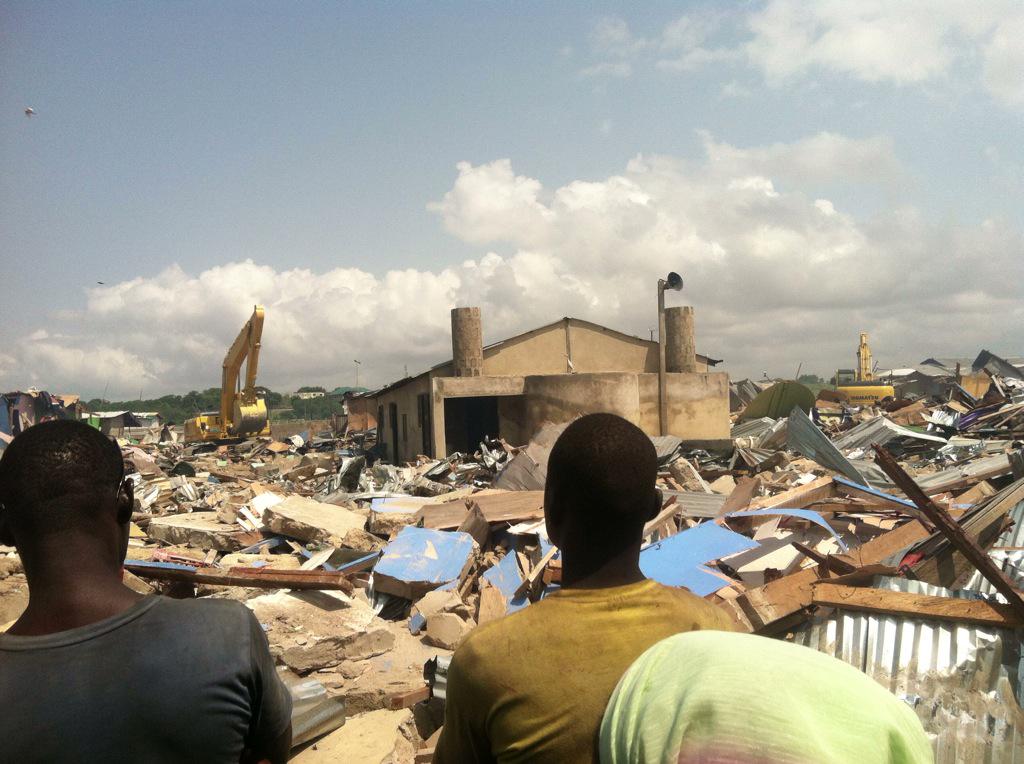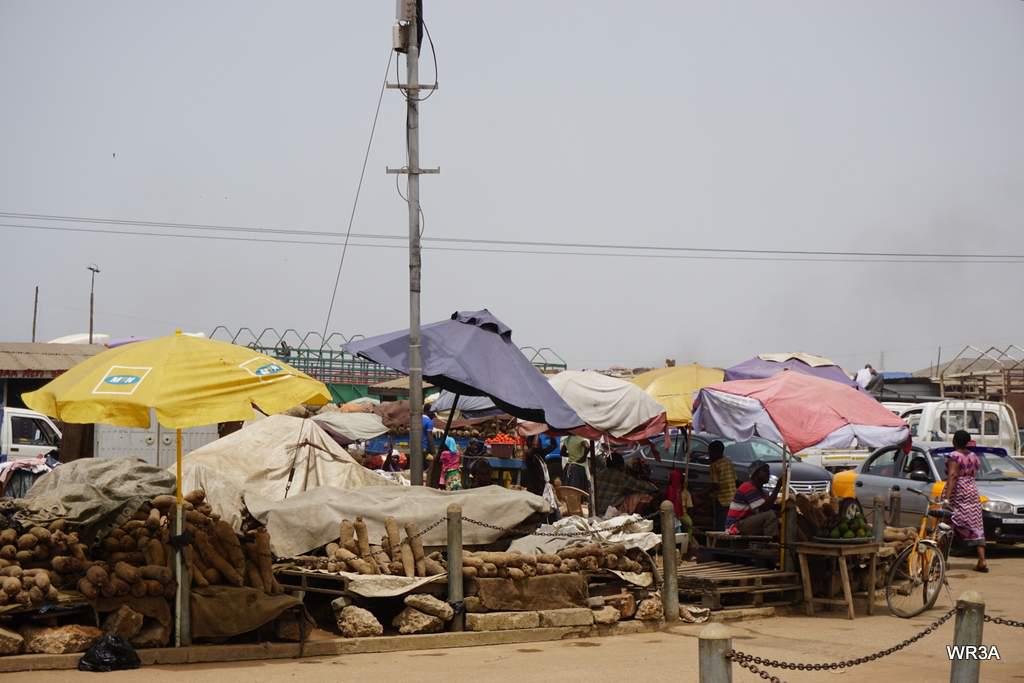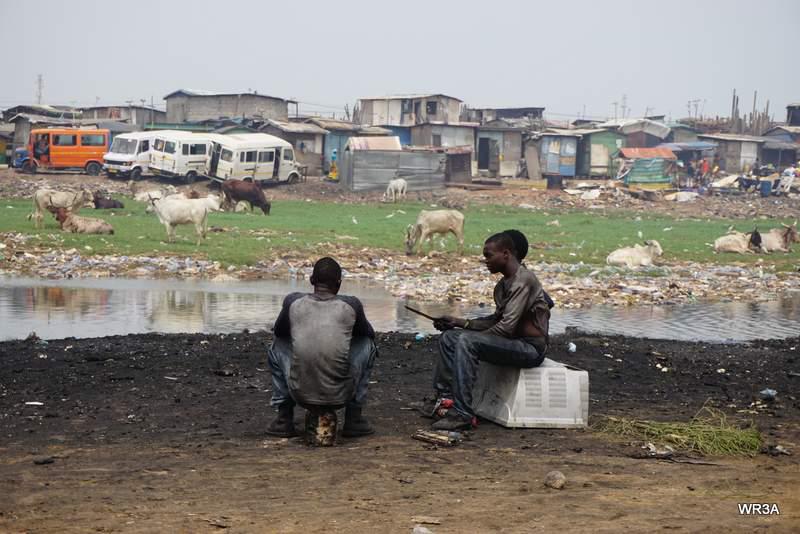First the good news: Three great articles came out making the same points that I've been trying to make for ten years, adding a great deal of intellectual value to the discussion of the E-Waste Export controversy.
Restart Project, Representations of Waste Matter
http://therestartproject.org/repair-elsewhere/representations-of-e-waste-matter/
Lepawsky, Goldstein, Schulz: Criminal Negligence?
http://discardstudies.com/2015/06/24/criminal-negligence/
Minter, Anatomy of a Myth
http://shanghaiscrap.com/2015/06/anatomy-of-a-myth-the-worlds-biggest-e-waste-dump-isnt/
Ghana's Parliament is now involved, and is asking the same tough questions posed by the Twittersphere through the week. If it's about flooding, why did they start in the rainy season? Why did the AMA start on the populated side of the river, rather than dredge from the opposite (scrapyard and landfill) side of the water? Why start on the first day of the holy Ramadan?
The bad news is that it's too little, too late to help the dispossessed refugees of the shantytown. My friends and acquaintances there describe homeless children now sleeping on the floors of mosques, unable to purchase mandatory school uniforms and supplies burned or bulldozed.
 But the worse news is the slum will be rebuilt much faster than the reputations of environmentalists and journalists. Too many environmentalists are ignoring our role in the propaganda campaign.
But the worse news is the slum will be rebuilt much faster than the reputations of environmentalists and journalists. Too many environmentalists are ignoring our role in the propaganda campaign.
We are living up to our label as "parasites of the poor". We are losing a generation of influence, as the scrappers of Agbogbloshie grow to dislike us and distrust us, believing that the people repeating lies about them are raking in enormous sums of wealth.
Bullyboy environmentalist, Joe Benson called us.
Sadly, in proportion, it's more true what they say about us than what we are saying about them. I'm sorry to be the bearer of that news, but don't kid yourselves, I'm not making it up, I have these conversations recorded on film.
My role as a blogger is to remind my fellow environmentalists, including the NGOs and EU-based bureaucrats who are making hundreds of thousands of dollars (or millions, in the case of one NGO) off of the #ewastehoax, that hyperbole harms.
Restart Project, Representations of Waste Matter
http://therestartproject.org/repair-elsewhere/representations-of-e-waste-matter/
Lepawsky, Goldstein, Schulz: Criminal Negligence?
http://discardstudies.com/2015/06/24/criminal-negligence/
Minter, Anatomy of a Myth
http://shanghaiscrap.com/2015/06/anatomy-of-a-myth-the-worlds-biggest-e-waste-dump-isnt/
Ghana's Parliament is now involved, and is asking the same tough questions posed by the Twittersphere through the week. If it's about flooding, why did they start in the rainy season? Why did the AMA start on the populated side of the river, rather than dredge from the opposite (scrapyard and landfill) side of the water? Why start on the first day of the holy Ramadan?
The bad news is that it's too little, too late to help the dispossessed refugees of the shantytown. My friends and acquaintances there describe homeless children now sleeping on the floors of mosques, unable to purchase mandatory school uniforms and supplies burned or bulldozed.
 But the worse news is the slum will be rebuilt much faster than the reputations of environmentalists and journalists. Too many environmentalists are ignoring our role in the propaganda campaign.
But the worse news is the slum will be rebuilt much faster than the reputations of environmentalists and journalists. Too many environmentalists are ignoring our role in the propaganda campaign.We are living up to our label as "parasites of the poor". We are losing a generation of influence, as the scrappers of Agbogbloshie grow to dislike us and distrust us, believing that the people repeating lies about them are raking in enormous sums of wealth.
Bullyboy environmentalist, Joe Benson called us.
Sadly, in proportion, it's more true what they say about us than what we are saying about them. I'm sorry to be the bearer of that news, but don't kid yourselves, I'm not making it up, I have these conversations recorded on film.
My role as a blogger is to remind my fellow environmentalists, including the NGOs and EU-based bureaucrats who are making hundreds of thousands of dollars (or millions, in the case of one NGO) off of the #ewastehoax, that hyperbole harms.







 Alhassan Ibn Abdalla
Alhassan Ibn Abdalla Robin Ingenthron
Robin Ingenthron





 TASC
TASC  Reassembling Rubbish
Reassembling Rubbish